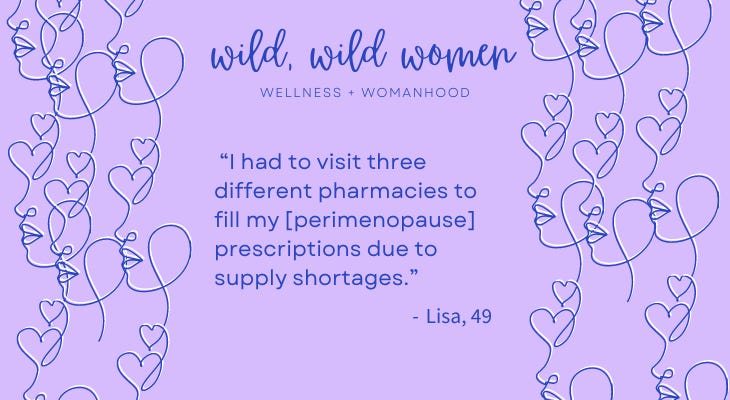Navigating menopause after a hysterectomy
One woman's experience through insomnia, hormone therapy and finding answers
Lisa and I met at an event hosted by a local women’s networking group a few months ago. After the event that night, a number of us got to talking about our personal experiences of going through menopause. Lisa is on a mission to destigmatize conversations about menopause and I am so grateful to her for sharing her story with all of you.
But first, I want to share this trailer with you I first came across on Instagram. The M Factor, a documentary by Tamsen Fadal, premieres on PBS on October 17.
One more thing; this newsletter is not medical advice. Please consult your doctor or medical provider, if you need medical advice.
Ok, let’s get started.
Name: Lisa
Where do you live: New York City
Age: 49
Tell us your story:
At 48, I opted for a hysterectomy due to a large uterine fibroid. My doctor and I decided to keep my ovaries to ease the transition into menopause. However, about six weeks after surgery, I started experiencing severe sleep issues—difficulty falling asleep and staying asleep.
Initially, I thought it was due to my disrupted schedule and lack of exercise post-surgery. But even after resuming CrossFit, I continued to struggle with sleep.
A women's clinic I went to recommended magnesium and herbal supplements, but they didn’t help. My surgeon then suggested I see a menopause specialist, but the wait for an appointment was three months.
Fortunately, through a women's network, I found a practice in NYC with immediate availability. By April 2024, I started hormone replacement therapy (HRT) with estrogen and progesterone. The progesterone helped me sleep the very night I started it.
However, I had to visit three different pharmacies to fill my prescriptions due to supply shortages.
What symptoms did you experience?
The most severe symptom was insomnia, both difficulty falling asleep and staying asleep, following my hysterectomy.
What do you wish you had known when you first started going through this?
Even if you keep your ovaries during a hysterectomy, your body may still transition into menopause more quickly than expected.
What resources have you found helpful?
I follow Dr. Mary Claire Haver on Instagram and subscribe to Dr. Carla DiGirolamo's newsletter.
What has been the hardest part of navigating the healthcare system for you?
The limited availability of appointments and medications has been the most challenging.
What would you like to tell other women going through a similar experience?
Have a plan in place beforehand and understand that it may take time to find the right solution. There could be a delay before you start feeling better.
Anything you would like to add?
Ask questions, do your research, and be your own advocate.
How it all began.






